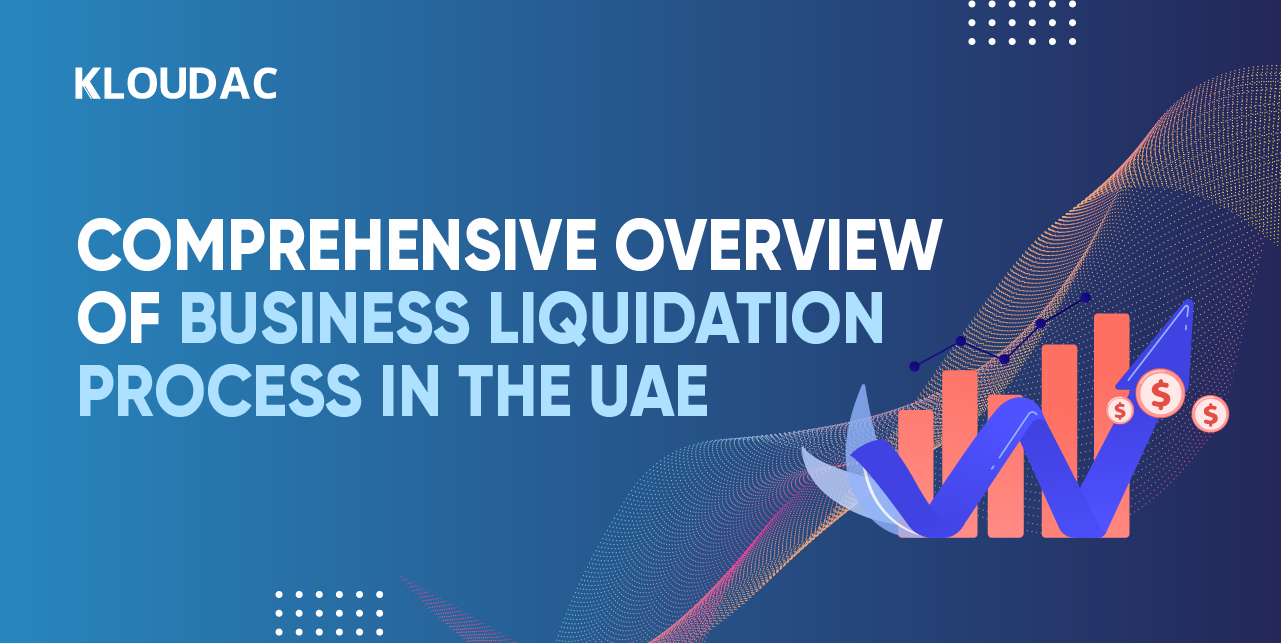If you’re a business owner in the UAE facing financial challenges or considering closing down your business, understanding the business liquidation process is crucial. Business liquidation refers to the process of winding up a company’s operations and distributing its assets among stakeholders to settle debts and obligations. In this blog, we will provide a comprehensive overview of the business liquidation process in the UAE, including the different types of liquidation, the steps involved, and the legal requirements.
What is Business Liquidation?
Business liquidation, also known as business dissolution or winding up, refers to the process of closing down a business and distributing its assets and liabilities among its shareholders or partners. In the UAE, there are two types of business liquidation: voluntary liquidation and compulsory liquidation.
Types of Business Liquidation in the UAE
In the UAE, there are two main types of business liquidation: voluntary liquidation and compulsory liquidation.
- Voluntary Liquidation: This occurs when a company decides to wind up its operations voluntarily. It can be initiated by the shareholders or the management of the company. Voluntary liquidation can be further classified into two types:
a. Members’ Voluntary Liquidation (MVL): This type of liquidation occurs when a company is solvent, and the shareholders pass a resolution to wind up the business voluntarily. The company’s assets are then used to settle debts, and the remaining funds are distributed among the shareholders.
b. Creditors’ Voluntary Liquidation (CVL): This type of liquidation occurs when a company is insolvent, and the directors of the company decide to wind up the business voluntarily. In this case, the company’s assets are used to settle debts owed to creditors, and any remaining funds are distributed among the shareholders. - Compulsory Liquidation: This occurs when a company is forced to wind up its operations by a court order. Compulsory liquidation can be initiated by creditors, shareholders, or other stakeholders who have a legal basis for seeking the liquidation of the company.
The business liquidation process in the UAE typically involves the following steps:
Board Resolution
In the case of voluntary liquidation, the company’s shareholders or management must pass a board resolution to initiate the liquidation process. The resolution should specify the type of liquidation, whether it’s a Members’ Voluntary Liquidation or a Creditors’ Voluntary Liquidation.
Appointment of a Liquidator
A liquidator is a person or a professional firm appointed to oversee the liquidation process. The liquidator is responsible for collecting and distributing the company’s assets, settling debts, and fulfilling other legal requirements. The liquidator must be registered with the relevant authorities in the UAE and must meet the qualifications and requirements specified by the law.
Notice to Creditors
Once the liquidator is appointed, they are required to publish a notice in local newspapers to inform creditors of the liquidation process. Creditors are given a specific period to submit their claims to the liquidator.
Asset Liquidation
The liquidator is responsible for selling or disposing of the company’s assets, including properties, inventory, and other tangible and intangible assets. The proceeds from the asset liquidation are then used to settle the company’s debts, including outstanding payments to creditors, employees, and other stakeholders.
Debt Settlement
The liquidator is responsible for settling all debts and obligations of the company, including outstanding taxes, loans, and other liabilities. The liquidator must follow the legal requirements for debt settlement, including prioritizing payments based on the priority of debts under the law.
Final Report and Distribution
Once all the assets are liquidated, and debts are settled, the liquidator prepares a final report that includes a detailed account of the liquidation process and the distribution of remaining funds, if any. The report is submitted to the relevant authorities for approval, and once approved, the remaining funds, if any, are distributed among the shareholders or other stakeholders based on their entitlements.
KLOUDAC Accounting Firm Dubai, UAE
The process of business liquidation can be complex and overwhelming, but understanding the comprehensive overview of the business liquidation process in the UAE can help you navigate through it with ease. KLOUDAC experts help you in understanding and processing business liquidation in the UAE.
